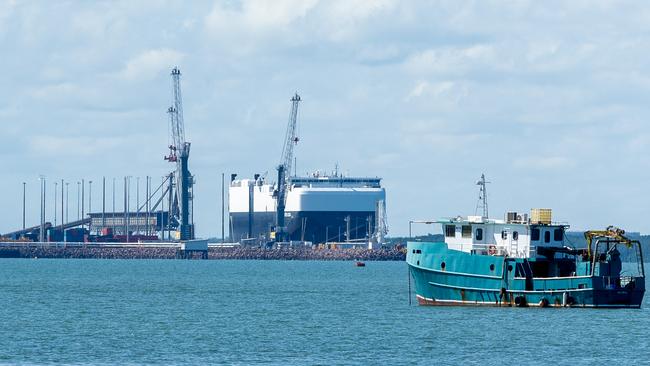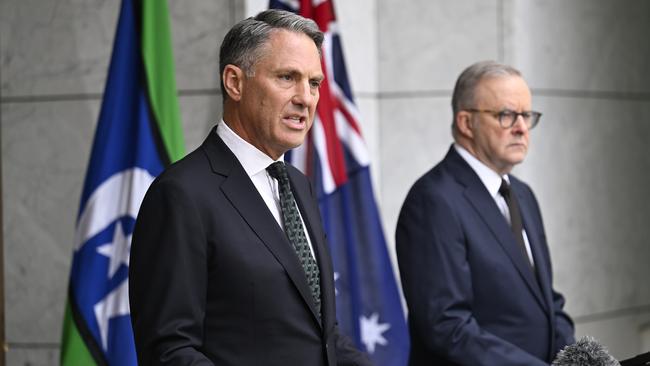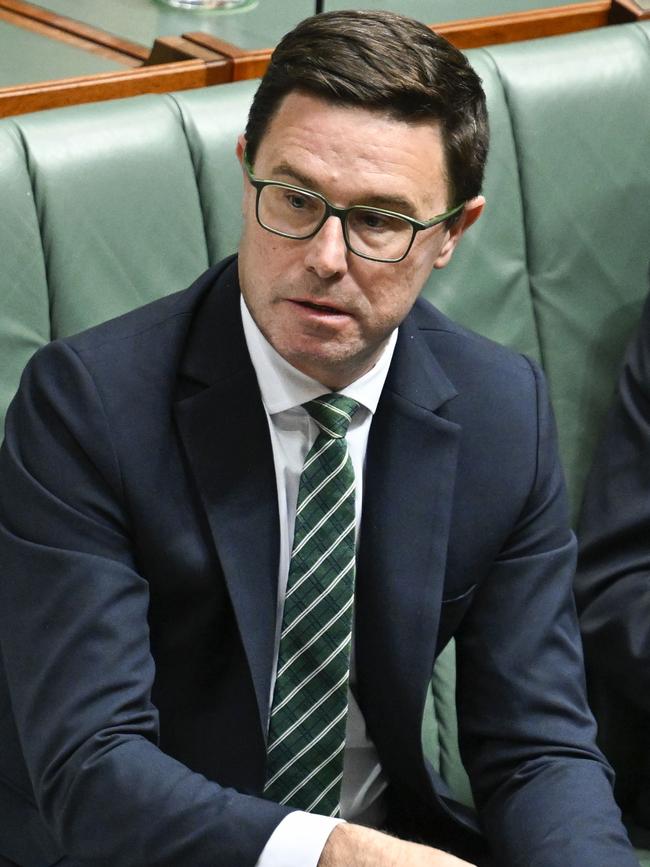
Darwin has become a militarily crucial port. In one of the very few positive strategic developments for Australia in recent years, increasing numbers of US troops, aircraft and navy ships rotate through northern Australia.
From Australia’s point of view, this serves key national interests. It strengthens allied deterrent capability in Australia. It reinforces the US alliance. It helps the US manage its regional force structure. And it ties the US into the Indo-Pacific.
The advent of Donald Trump makes these objectives much more difficult. That doesn’t make them less important but more important. We need to keep the substance and structures of the alliance intact.
From the US perspective, the northern Australian initiative helps decentralise and disperse its regional forces, making them harder to hit, especially pre-emptively, and offering greater operational flexibility.

Since the US began this process Chinese interests have emerged everywhere the US went. We can speculate about what the Chinese wanted out of such presence. The original decision on the lease, in October 2015, was a national security atrocity. The then Liberal government did subsequently reform foreign investment regulations concerning critical infrastructure.
But it had from 2015 to the election in May 2022 to reverse the situation by requiring the sale of the lease to an approved entity, either Australian owned or perhaps a company owned by an ally or friend. That it never did this is evidence of its woeful passivity in the face of Defence bureaucracy inertia. The Defence establishment would never admit its initial advice that the lease was perfectly harmless and happy was wrong.
So for all the anti-China talk from the Turnbull and Morrison governments, including when Peter Dutton was defence minister, precisely nothing happened.
No Coalition spokesman looked quite so clueless as Nationals’ leader David Littleproud explaining on the ABC’s Insiders that responsible governments, and even responsible oppositions presumably, had to act when given certain advice.
What advice was he referring to? Official advice? Defence advice, rebuking its former findings, findings that had been reaffirmed by the Prime Minister’s Department as recently as 2023?
Of course, there was no advice. Nor was any advice needed. Here’s a giant, radical idea: political leaders sometimes actually lead. Dutton’s decision to take back control of the port is sound but there is no explanation for the Coalition’s failure to do so in government.
Littleproud sounded astoundingly unfamiliar with national security as a coherent policy area, more like a word processor than a political leader. Why hadn’t the Coalition put forward its defence spokesman, Andrew Hastie, for an interview like that?

But the Coalition was a positive combination of Winston Churchill, Clausewitz and Sun Tzu compared with Anthony Albanese and Defence Minister Richard Marles. The Prime Minister claimed the Labor Party had always opposed this lease. But his very government in 2023 conducted an inquiry that found – quelle surprise! – that the former official advice was sound and there was nothing to worry about in the lease arrangements.
This was a very convenient finding when Albanese was desperate to “stabilise” the relationship with China.
Marles was interviewed by a heroic Tom Connell on Sky News on Monday. Marles was even more ridiculous and word processor-like than Littleproud. Echoing Albanese, Marles repeatedly stated that Labor’s overriding concerns on the Port of Darwin had been consistent since 2015. But what about your assurance in 2023 that the lease was fine, Connell asked in several different formulations. What’s changed? Is there new advice?
Marles, robot-like, simply repeated the preposterous line that Labor had always been consistent on this.
There is a kind of banal, national tragedy in this whole issue. The nation needs and deserves a national security dialogue about 28 standard deviations better than this.
It demonstrates, among other things, that both sides of politics routinely hide behind the tattered fig leaf of formal “advice” in making crucial security, defence and even foreign policy decisions in government. No Australian government should need official advice to know that the Darwin lease was ridiculous and against the national interest right from the start. Even that well-known warmonger, Barack Obama, complained about it.
But from 2015 to 2025 our national leadership, on both sides of politics, couldn’t bring itself to take the obvious and necessary action. This indicates that in national security the quality of our political leadership is very poor.


Politicians don’t know enough, they don’t understand enough, they don’t take responsibility and they don’t lead. The Darwin decision has happened now, it seems, only because each side was scared it would lose a trick to the other and thereby might appear weak.
Albanese has been Prime Minister for three years, so his is the more proximate responsibility. But the Liberals are meant to be strong on national security. Dutton was a defence minister. So their decade-long failure on this issue is even more politically damaging.
So far, Dutton is losing this campaign and he’s even managing to mangle national security.
Where and when is the Liberal commitment on defence spending? If it’s a lot, the Liberals need to campaign for it, explain what it will produce, why it’s necessary and where the money’s coming from. If it’s not much, then they should hang their heads in shame.
They can’t do what both sides of politics currently try – simply avoid all hard discussions and all hard decisions. US founding father Alexander Hamilton famously argued that “energy in the executive” was a critical quality in good government.
It’s pretty important in good opposition too.
My beloved Bulldogs in the NRL are at the moment in the place God always intended for them, at the top of the competition. Supremely, they display “energy in the executive”. They dictate the tempo of the game by being faster than their opponents in everything. And they never give up on a play.
So far, the opposition has been entirely reactive in this campaign. At the last election, they left their one good policy, letting people use their super to buy a house, until the last minute, making it entirely ineffective politically, because they were scared it would be opposed. Will they this time do the same on defence?
By the way, in Sunday’s game, the Dogs’ opponents were entirely reactive. And they didn’t score a point.





It’s good that both sides of politics have decided to take back control of the Port of Darwin from the Chinese-owned Landbridge company. But what a colossal mess they’ve both made of this issue for the past decade. How wretchedly they’ve both been effectively forced into doing the right thing, only after exhausting all other possibilities.